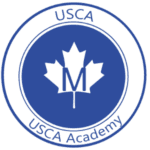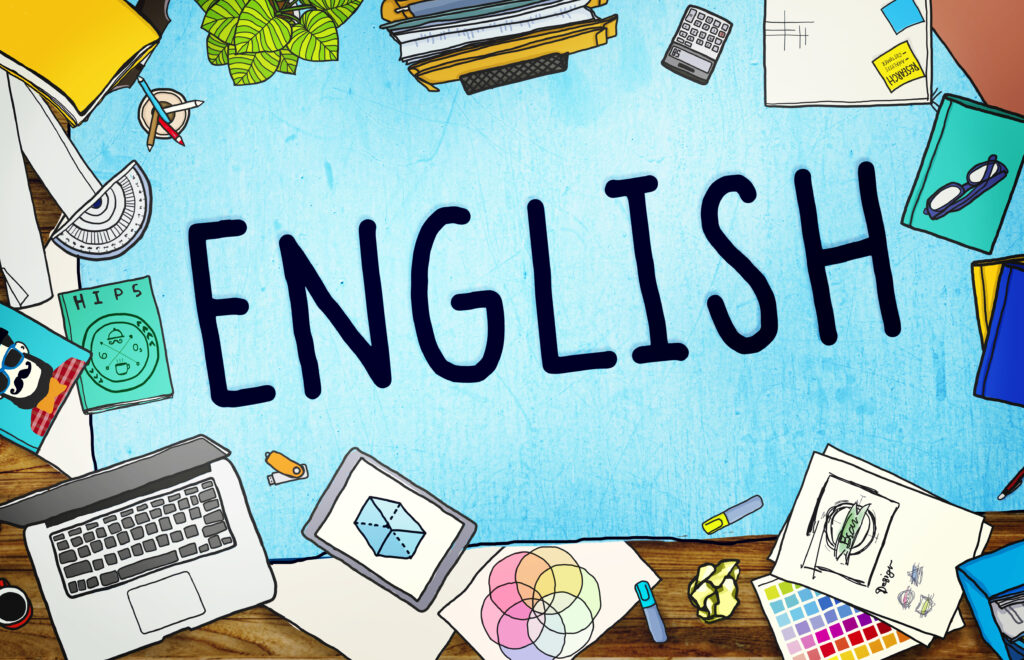ENG4U - Grade 12 English
Send Us A Message
Course Description For ENG4U Grade 12 English Online Course
ENG4U – English is a complete course. It aims to boost literacy, communication, and critical thinking skills. These skills are vital for success in school and daily life. Students will read a variety of literary works. These works come from different time periods, countries, and cultures. They will also analyze informational and graphic texts. The course focuses on creating oral, written, and media texts in many formats.
A main goal is to master academic language. Students will use reading strategies that fit specific texts and purposes. They will also improve their writing precision and fluency. ENG4U prepares students for their next steps. This could be in university, college, or work.
For more information about the ENG4U course, feel free to contact us.
Prerequisite: English, Grade 11, University Preparation
Ministry Course Title: English, Grade 12, University Preparation.
Common Course Name: English
Course Code: ENG4U
Grade: 12
Course Pathway Type: University Preparation
Credit Value: 1.0
Prerequisite: English, Grade 11, University Preparation
Course Developer: Ontario Online School Course Development Team
Department: English
Initial Development Date: May 2020
Most Recent Revision Date: Ongoing – course direction is determined through collaboration between teachers and students
Overview Of Units And Timelines For Grade 12 English ENG4U
Here’s the suggested sequence for delivering course units, along with the recommended hours needed to complete each one. For a detailed breakdown of the specific expectations and activities included in each unit, refer to the Unit Overviews provided in the ENG4U course profile.
Unit
Titles and Descriptions
Time and Sequence
Unit 1
William Shakespeare — Hamlet
Students will read the play by acts. At the end of each act students are expected to complete written journal assignments from a choice of topics. Some of the topics will focus specifically on the play itself, (characters, setting, tone, mood etc.), while others will require the students to make connections to other works of art (other genres such as film, poetry, visual art), or history and selected social issues.
39 hours
Unit 2
Poetry
Students will study literary and poetic devices, and analyse modern poetry utilizing these tools. Moreover, a creative writing assignment on poetry will be part of this unit.
30 hours
Unit 3
Short Stories
Students will be presented with a number of short stories by a variety of authors from different time periods, and cultural backgrounds. In this unit, students will also be introduced various approaches to literary criticism, and asked to apply some of these studied approaches to analyze literary texts.
24 hours
Unit 4
Novel Study and Media
Students will read a novel of their own choice (selected from a list of available titles), and work in “literature circles” with other students who also have chosen the same novel. Formal study guides will be provided, students will engage in mini- conferences, oral presentations, and team analysis of their chosen texts. A final essay on the novel will be a part of formal evaluation and assessment of this unit.
23 hours
Unit 5
Final Evaluation
The final assessment task is a three hour final exam worth 30% of the student’s final mark in the course.
03 hours
Total
110 hours
English Grade 12: Since the over-riding aim of this course is to help students use language skillfully, confidently and flexibly, a wide variety of instructional strategies are used to provide learning opportunities to accommodate a variety of learning styles, interests and ability levels. These include:
| Think/pair/share | Word wall | Panel discussions |
|---|---|---|
| Directed Questioning | Group learning | Role playing |
| Reading response journal | Extensive use of visual clues | Interviews |
| Guided writing | Scaffolding | Simplified texts |
| Story telling/story boarding/media production | Oral presentations | Pre-teaching of key vocabulary |
English Grade 12: A variety of strategies are used to allow students opportunities to attain the necessary skills for success in this course and at the post-secondary level of study. To facilitate learning, the teacher uses a variety of activities engaging the whole class, small groups, and individual students.
The assessment will be based on the following processes that take place in the classroom:
| Assessment FOR Learning | Assessment AS Learning | Assessment OF Learning |
|---|---|---|
During this process the teacher seeks information from the students in order to decide where the learners are and where they need to go. | During this process the teacher fosters the capacity of the students and establishes individual goals for success with each one of them. | During this process the teacher reports student’s results in accordance to established criteria to inform how well students are learning. |
| Conversation | Conversation | Conversation |
| Classroom discussion Self-evaluation Peer assessment | Classroom discussion Small group discussion | Presentations of research Debates |
| Observation | Observation | Observation |
| Drama workshops (taking direction) Steps in problem solving | Group discussions | Presentations Group Presentations |
| Student Products | Student Products | Student Products |
| Reflection journals (to be kept throughout the duration of the course) Check Lists Success Criteria | Practice sheets Socrative quizzes | Projects Poster presentations Tests In Class Presentations |
Some of the approaches to teaching/learning include
| Strategy | Who | Assessment Tool |
|---|---|---|
| Class discussion | Teacher | Observation Checklist |
| Response Journal | Teacher | Anecdotal Comments |
| Student Chosen Song | Teacher | Observation Checklist |
| Narrative Poem/Song | Teacher | Rubric and Anecdotal Comments |
| Character Sketch | Self | Checklist |
| Journal Responses | Self/teacher | Anecdotal comments |
| Short Story Analysis | Teacher | Rating scale |
| Short Story Outline | Teacher | Rating scale |
| Anecdote | Teacher | Direct Observation |
| Found poem | Teacher | Direct Observation |
| Journal Entries | Teacher | Anecdotal |
| Research Notes | Self/Teacher | Checklist |
| Non-fiction Report/Presentation | Teacher | Rubric |
| Presentation to group | Self/Peer | Self-and peer assessment rubric |
| Sight passage | Teacher | Marking scheme |
| Narrative piece | Teacher | Rubric |
Assessment is embedded within the instructional process throughout each unit rather than being an isolated event at the end. Often, the learning and assessment tasks are the same, with formative assessment provided throughout the unit. In every case, the desired demonstration of learning is articulated clearly and the learning activity is planned to make that demonstration possible. This process of beginning with the end in mind helps to keep focus on the expectations of the course as stated in the course guideline. The evaluations are expressed as a percentage based upon the levels of achievement.
English Grade 12: The evaluation of this course is based on the four Ministry of Education achievement categories of knowledge and understanding (25%), thinking (25%), communication (25%), and application (25%). The evaluation for this course is based on the student’s achievement of curriculum expectations and the demonstrated skills required for effective learning.
The percentage grade represents the quality of the student’s overall achievement of the expectations for the course and reflects the corresponding level of achievement as described in the achievement chart for the discipline.
A credit is granted and recorded for this course if the student’s grade is 50% or higher. The final grade for this course will be determined as follows:
- 80% of the grade will be based upon evaluations conducted throughout the course. This portion of the grade will reflect the student’s most consistent level of achievement throughout the course, although special consideration will be given to more recent evidence of achievement.
- 20% of the grade will be based on a final exam administered at the end of the course. The exam will contain a summary of information from the course and will consist of well−formulated multiple-choice questions. These will be evaluated using a checklist.
| Unit Number | Description | Evaluation Weight | KICA |
|---|---|---|---|
| Unit 1 | Strand 1: Scientific investigation skills and career exploration Strand 2: Forces, Work and Energy | Quiz 3% Total 14% | 25ƒ25ƒ25ƒ25 |
| Unit 2 | Strand 1: Scientific investigation skills and career exploration Strand 3: Energy and Momentum | Quiz 3% Total 14% | 25ƒ25ƒ25ƒ25 |
| Unit 3 | Strand 1: Scientific investigation skills and career exploration Strand 4: Electric, Gravitational and Magnetic Fields | Quiz 3% Total 14% | 25ƒ25ƒ25ƒ25 |
| Unit 4 | Strand 1: Scientific investigation skills and career exploration Strand 5: The Wave Nature of Light | Quiz 3% Total 14% | 25ƒ25ƒ25ƒ25 |
| Unit 5 | Strand 1: Scientific investigation skills and career exploration Strand 6: Revolutions in Modern Physics: Quantum Mechanics and Special Relativity | Quiz 3% Total 14% | 25ƒ25ƒ25ƒ25 |
| Culminating activity | 10% | 25ƒ25ƒ25ƒ25 | |
| Final Exam | 20% | 25ƒ25ƒ25ƒ25 | |
| Total | 100% | ||
| The percentage grade represents the quality of the students’ overall achievement of the expectations for the course and reflects the corresponding achievement as described in the achievement charts and will be 70% of the overall grade for the course; the Final evaluations will be 30% of the overall grade, incorporating a student/teacher conference and final exam. | |||
| Percentage of the Mark | Categories of Mark Breakdown | ||
| 70% | Assignments (25%) Tests (30%) Labs and Quiz (15%) | ||
| 30% | Culminating Activity (5%) and In Class discussion and presentations (Observations and Conversation (5%) Final Exam (20%) | ||
Main Resources: Textbook
Nelson Physics 12 University Preparation © 2012
Frequently Asked Questions (FAQ)
The course focuses on enhancing literacy, communication, and critical thinking skills through the study of diverse literary and informational texts.
Students must have completed ENG3U, English Grade 11, University Preparation.
The course includes studies on Hamlet, modern poetry, various short stories, and a novel of the student’s choice.
Assessment is based on assignments (25%), tests (30%), quizzes (15%), culminating activities (5%), and a final exam (20%).
It develops skills in academic language, critical analysis, and coherent writing, essential for university, college, or the workplace.


